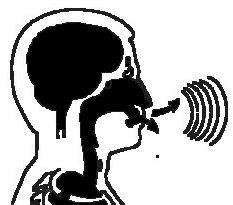 Â Apraxia is a disorder of the nervous system where there’s an inability to carry out learned purposeful movements such as speech, despite having the desire and physical ability.
 Apraxia is a disorder of the nervous system where there’s an inability to carry out learned purposeful movements such as speech, despite having the desire and physical ability.
Surprisingly, a lack of high quality studies makes it impossible to know which treatments are most effective in children or adolescents, according to this Cochrane review.
First, the details.
- A literature search for well-designed studies in children aged 3 to 16 years with childhood apraxia of speech was conducted using several databases.
- The authors assessed titles and abstracts identified from the searches and obtained full articles of all potentially relevant articles.
- Articles were assessed for design and risk of bias.
And, the results.
- Among 825 titles and abstracts, 31 abstracts appeared to be worth including in the review.
- But after reading the 31 articles, no studies could be included in this review.
The bottom line?
The National Institute on Deafness and Other Communications Disorders agrees, “No single [treatment] approach has been proven to be the most effective.”
Treatment options are left to the discretion of the therapist after assessing the patient.
I guess we need more studies.
10/20/08 21:35 JR